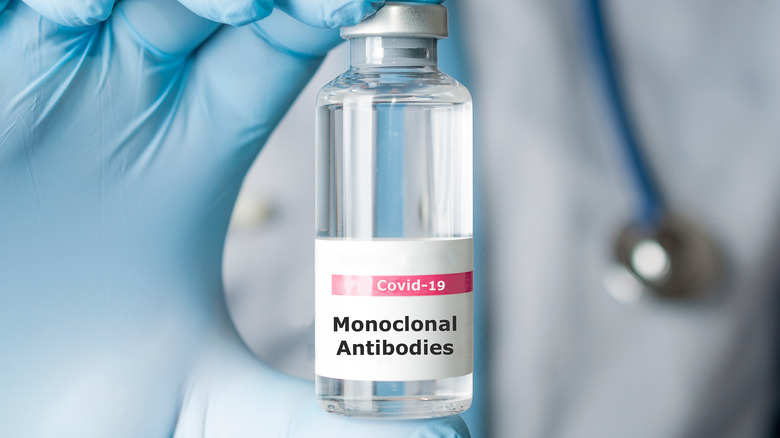Why Some Doctors Aren't Using This Early Treatment For COVID-19
A recent investigation by CNN has shown that many doctors — and their patients — aren't aware of a potentially lifesaving treatment against the COVID-19 virus: monoclonal antibodies. The U.S. Food and Drug Administration approved emergency use authorization for the monoclonal antibodies, casirivimab and imdevimab, on November 21, 2020. Even a year later, however, many doctors aren't recommending this treatment.
According to the U.S. Centers for Disease Control and Prevention, the antibodies have been found in clinical trials to be effective in reducing emergency room visits and hospital admissions for patients diagnosed with COVID-19 who are at risk of severe symptoms. In August 2021, Dr. Anthony Fauci presented data showing that, when given early, monoclonal antibody treatments reduce the risk of hospitalization or death by up to 85%.
"This is a very effective intervention for COVID-19. It is underutilized, and we recommend strongly that we utilize this to its fullest," Fauci said at the time. "We want people out there, including physicians, as well as potential patients, to realize the advantage of this very effective way of treating early infection."
The availability of monoclonal antibody treatment
Though monoclonal antibody treatments are free and effective, doctors still aren't mentioning this option to their patients in many qualifying cases (per CNN). In order to be eligible for the treatment, a patient must have shown symptoms for 10 days or fewer, and their case must be mild or moderate. Even patients who are aware of the treatment may have trouble securing access to it. While CNN notes that there are plenty of antibodies available, many medical centers are facing staffing shortages and are unable to meet the demand.
"There is much more that goes into the treatment than just the infusion or shots themselves," Akin Demehin, the American Hospital Association's director of policy, told CNN. "These treatments also require the right kinds of equipment, including infusion pumps, IV bags, seating areas for patients. You also need qualified staff to check patients in, deliver the infusions or shots, monitor for side effects, etc."
It's important to note that vaccination is still considered the most effective protection against the COVID-19 virus.


